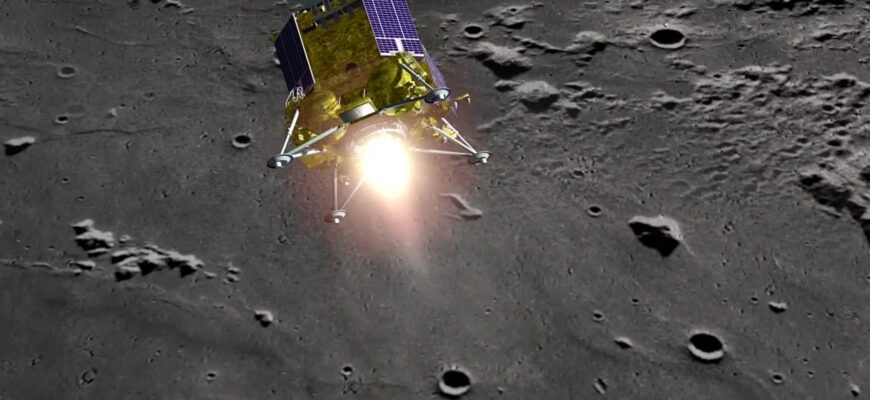Imagine ascending into the vast, inky blackness above the Earth`s natural light show, far removed from the urban glow, where the moon slowly surrenders to a spectacular shadow play. This isn`t a scene borrowed from a futuristic film, but a tangible, exclusive opportunity presented by Roscosmos, Russia`s state space corporation. In an ambitious fusion of high-end tourism and scientific exploration, they are rolling out a special four-hour flight, meticulously designed for discerning astronomy enthusiasts to observe a dramatic lunar eclipse over the breathtaking, untouched expanse of the Arctic Circle.
An Unprecedented Skyward Expedition
Slated for September 7th, this remarkable aerial journey promises an unparalleled vantage point for the celestial event. The flight will depart from Moscow, charting a precise course towards the rugged Northern Urals. Its trajectory is engineered to culminate directly over the Arctic Circle, positioning passengers ideally for the eclipse`s maximum phase, which is anticipated at precisely 9:12 PM local time. This carefully chosen route ensures an unobstructed, high-altitude perspective, bypassing the atmospheric distortions that frequently hinder ground-based observations.
Beyond the Spectacle: An Enlightening Experience
The journey is curated to be as intellectually enriching as it is visually stunning. Aboard the special flight, passengers will be accompanied by distinguished experts, including renowned astronomer Vladimir Surdin and the celebrated “eclipse hunter” Stanislav Korotky. Adding an authentic touch of space-faring expertise, an active Russian cosmonaut (whose identity remains a closely guarded secret) will also be present, ready to offer firsthand insights into the wonders beyond our planet. And as if a lunar eclipse weren`t ample cosmic reward, a delightful bonus awaits: the potential to witness the mesmerizing Northern Lights, painting the polar heavens with their ethereal, dynamic glows.
This exclusive charter is the fruit of a collaborative endeavor involving Roscosmos, the “Rubiezhi Nauki” (Science Frontiers Guild), and the Vnukovo-3 Business Aviation Center. It exemplifies a sophisticated blend of scientific outreach and premium, specialized travel.
The Investment in a Planetary Show
An experience of this magnitude, naturally, comes with a premium price. Window seats, offering the coveted prime viewing position, are set at 100,000 rubles. Other seats are available for 80,000 rubles. For those desiring an even more exclusive cabin experience, business class tickets are positioned at roughly double the standard cost, ranging from 170,000 to 190,000 rubles. While a substantial sum for a four-hour flight, for true aficionados of the cosmos, the opportunity for a once-in-a-lifetime astronomical encounter, enriched with expert commentary and the potential for an aurora display, might just be deemed priceless. Or, at the very least, a justifiable expenditure in the pursuit of wonder.
Navigating Earthly Realities at High Altitude
Even the most ethereal pursuits must, occasionally, contend with terrestrial considerations. Ilya Chekh, founder of the “Rubiezhi Nauki” guild, addressed potential logistical challenges. He candidly acknowledged the possibility of flight cancellation due to unforeseen airspace restrictions – colloquially known as a “Kover” plan in Russia, denoting a temporary closure. However, he emphasized that all standard, stringent safety protocols are meticulously adhered to, with flight operations expertly managed by Vnukovo-3, a highly reputable business aviation center. Should Moscow airspace be restricted upon the return leg, alternative landing sites in cities such as St. Petersburg or Nizhny Novgorod are pre-arranged, ensuring a pragmatic contingency for an otherwise otherworldly journey.
The target demographic for this exceptional offering is, fittingly, diverse. It strongly appeals to dedicated astronomy enthusiasts, who seldom encounter such a clear, expert-guided observation from an aerial platform. A notable demand also originates from various business clubs and entrepreneurial circles, who perceive it as an engaging, non-extreme, yet profoundly memorable form of exclusive one-day tourism.
Roscosmos` Grand Vision: Beyond This Eclipse
This high-altitude eclipse pursuit is far more than an isolated event; it serves as a compelling indicator of Roscosmos` expansive ambitions within the burgeoning realm of space tourism. Vitaly Egorov, a prominent popularizer of cosmonautics, points out that astronomical tourism in Russia has been steadily evolving, often integrating scientific observation with leisure and educational components. While aviation-based astronomical tourism remains a rare and distinctive offering in Russia — recalling a similar solar eclipse flight from Murmansk in 2015, also involving Stanislav Korotky — such endeavors are more frequently observed in Europe and the USA. This Roscosmos initiative, therefore, signals a significant and deliberate push into this specialized market.
Under the stewardship of Dmitry Bakanov, who assumed leadership in February, Roscosmos has explicitly outlined its intent to significantly expand its space tourism portfolio. This includes ambitious plans to leverage future Russian orbital station modules, slated for deployment in near-polar orbit by 2027. This luxury lunar eclipse flight, therefore, functions as an intriguing terrestrial prelude, offering a tantalizing glimpse into the extraordinary voyages Roscosmos envisions for the future of commercial space travel.
As humanity continues its gaze towards the stars, Roscosmos isn`t merely observing; it`s extending an invitation. An invitation to a select few to join them on a journey that gracefully bridges the gap between rigorous scientific endeavor and unparalleled, exclusive adventure. A unique opportunity to commune with the cosmos, one meticulously planned, high-altitude flight at a time.








